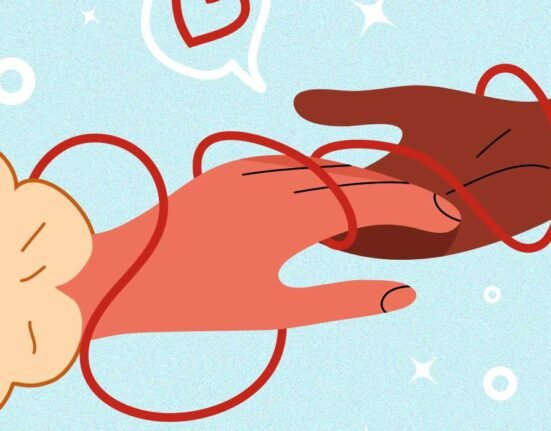In today’s hyper-connected world, being popular is often mistaken by friends, flooded with messages, tagged in every group photo, and assumed they be living a socially rich life. But behind the smiles and endless conversations, there’s a silent truth many people carry: you can be surrounded by everyone and still feel utterly alone. Many people have friends, but they feel alone because friends have more, but no one can give support in their problems, and they try to solve their problems.
They ask the person about the problem and give sympathy and empathy, but don’t give any solution to them and make fun of them. And there are many friends with that person, but they didn’t share their problem because they think that they will be made fun of and insulted. And they didn’t give any advice or suggestions on any discussed topic because they think that if they give advice or suggestions to them, they will make fun of them, or they didn’t accept or listen to the point or said that their ideas are boring or senseless, or they didn’t communicate with them and live alone.
I am giving an example of mine; I also thought that if they didn’t like my ideas or thoughts and made fun of me for this, I wouldn’t share any ideas with them. I felt alone and depressed, and didn’t want to meet them or communicate with them and didn’t meet them and didn’t want to stay with them.
Read More: Why Adult Friendships End: Emotional Compatibility and Life Changes
The Illusion of Connection
The modern definition of friendship has changed drastically. With a single tap, we can connect with them from any place. But we did not meet them every day, and they met in any function or festivals or trips or reunions them or any emergencies. Human beings are wired for connection. We seek belonging, recognition, and emotional safety in our relationships. Social media and modern communication have made it easier than ever to build a vast network of acquaintances; to collect “friends” like souvenirs from every phase of life. However, quantity rarely equals quality.
Those who are “friends with everyone” often build wide but shallow connections. They can engage in small talk effortlessly, offer help when needed, and appear genuinely present in every interaction. Yet, when the conversation turns intimate or vulnerable, they may find themselves stepping back. The relationships, though numerous, lack depth and depth is what sustains us emotionally. Over time, this imbalance can create a hollow feeling: the awareness that one is known by many, but truly understood by none.
Read More: Feeling Lonely in a Friend Group? Here’s What It Means and What to Do
The Burden of Being Liked
At first, being universally liked can feel rewarding. It feeds a sense of acceptance and validation. But it also comes with pressure; the unspoken expectation to maintain a friendly image, to avoid conflict, and to please everyone. People who are “friends with everyone” often become peacekeepers or emotional chameleons, adapting their behaviour to fit each group or individual.
This adaptability can come at a cost. The more one adjusts to please others, the more distant they become from their authentic self. Their own opinions, frustrations, or vulnerabilities may be hidden to avoid disappointing others or breaking the illusion of friendliness. Over time, this suppression creates emotional fatigue. They may find themselves constantly performing rather than simply being. Being liked by all can therefore become a quiet trap; it demands a version of yourself that may not always feel true.
Surface-Level Closeness and Emotional Distance
Friendliness or friendship are not the same because many people make the mistake the ability to connect easily with having meaningful friendships. Yet, true friendships require any other things not more than shared photos, videos and chatting or trips; they need emotional attachment, feelings, sympathy and empathy, honesty, trust and mutual vulnerability. When someone spreads fake rumours about them, they make differences and detach from each other, and difficult to invest in the feeling in anyone. When someone becomes socially overextended, it becomes difficult for them to invest deeply in any one relationship.
They might have dozens of active conversations, but no one they can truly call at midnight when everything feels wrong. They may attend parties surrounded by familiar faces but feel unseen in the crowd. This emotional distance can be so confusing. Because others perceive them as socially fulfilled, while internally they feel isolated or lonely. The contrast between outer perception and inner belief feels to deepen loneliness, and it feels as if there is no safe space to admit the emptiness without breaking the illusion of being the friendly one.
Read More: 10 Signs of Having a True Friendship
Why do We Avoid Deep Bonds?
We avoid deep bonds because being friends with someone is not a habit but a defence mechanism; it offers safety- if you belong everywhere you don’t risk rejection anywhere, but keeping relationships light, you avoid the pain of conflict, loss, and betrayal that often accompany deep emotional ties. However, this avoidance can make one feel better and also prevent joy, happiness and comforts that come from real connections.
The Digital Amplifier
Social media has intensified this paradox. Platforms like Instagram, Snapchat, and Facebook make it easy to appear socially rich; a constant stream of likes, messages, and interactions creates the illusion of belonging. But digital friendships often focus on presentation rather than presence. Scrolling through hundreds of updates and sending emojis in response can mimic connection, but it rarely satisfies emotional needs. The more one invests in being visible online, the less time they may have for quiet, meaningful offline moments. In this way, digital life can turn social abundance into emotional scarcity.
Finding Depth in a Shallow World
Escaping the loneliness of being “friends with everyone” doesn’t mean withdrawing or becoming antisocial. It means choosing authenticity over appearance, and depth over breadth. Here are a few ways to begin that shift:
- Prioritise a few meaningful connections: It’s better to have two or three people who truly understand you than twenty who only know your surface. Invest time and honesty in those relationships.
- Allow yourself to be vulnerable: Share your fears, frustrations, and hopes with people you trust. Vulnerability is the bridge between friendliness and real friendship.
- Set emotional boundaries: You don’t need to please everyone or be available to everyone. Learn to say no when social obligations become draining.
- Embrace solitude: Time alone isn’t the same as loneliness. Solitude helps you reconnect with your authentic self, so you can form relationships based on who you truly are.
- Seek environments that value depth: Join small communities or activities that encourage real conversation; book clubs, volunteer groups, or creative spaces — where authenticity matters more than popularity.
Read More: Importance of Boundaries in Friendship
Conclusion: The Courage to Be Real
The loneliness of being friends with everyone is not about others; it’s about the self. It arises when the desire to belong overshadows the need to be genuine. True connection begins when we stop performing and allow ourselves to be seen as we are: imperfect, flawed, and real. Being surrounded by people can fill a room, but only authenticity can fill a heart. In a world obsessed with being liked, perhaps the bravest choice is to seek being known instead.
References +
Cacioppo, J. T., & Patrick, W. (2008). Loneliness: Human Nature and the Need for Social Connection. W. W. Norton & Company. → A foundational book explaining the psychological and biological effects of loneliness even in socially active individuals.
Dunbar, R. I. M. (2018). The anatomy of friendship. Trends in Cognitive Sciences, 22(1), 32–51.
Discusses the limits of maintaining close friendships and how having too many superficial ties can lead to emotional isolation. Turkle, S. (2011). Alone Together: Why We Expect More from Technology and Less from Each Other. Basic Books.
Explores how digital social networks can make people appear socially connected while deep emotional intimacy declines. Yang, C. C., & Brown, B. B. (2016). Online self-presentation and the development of intimacy in adolescent friendships. Computers in Human Behaviour, 63, 494–503.
Shows that curated social interactions often fail to fulfil deeper emotional needs. Hall, J. A. (2018). How many hours does it take to make a friend? Journal of Social and Personal













Leave feedback about this